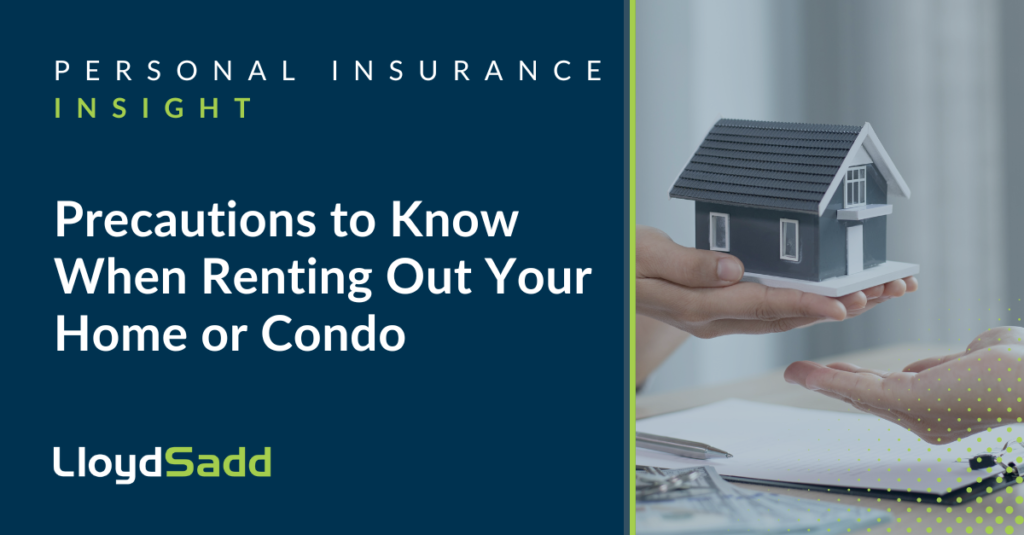Precautions to Know When Renting Out Your Home or Condo

Do you believe your home or condo could make for a perfect vacation rental? Many homeowners are looking to take advantage of renting their home – a trend that has grown into a multi-billion dollar industry. But before moving forward, it’s wise to learn about insurance as it relates to short-term rentals.
Legal Considerations
A good first step is to review the terms of your homeowners association or condo bylaws or local laws, and check if your municipality has an ordinance regarding short-term rentals.
You’ll also want to consider city-specific regulations. Understanding the laws and regulations in your city or province will help you avoid potentially hefty fines and even eviction, if it’s considered illegal to rent your home in your area. Online marketplaces like Airbnb and Vrbo offer information to help homeowners understand the many considerations and practice due diligence.
Homeowners, Renters and Landlord Insurance – What You Need to Know
Be sure to weigh the benefits versus the risks before opening up your home to visitors. For example, what if your guest destroys your property or your neighbour’s landscaping? What about damage to the common space in your condo building? Who pays for injuries on your property? Are you liable? It’s important to answer these questions before listing your property.
While an online brokerage company like Airbnb may provide a measure of protection, you may still be in for a costly surprise. For example, Airbnb offers up to $1 million in protection for damages to covered property. But the program doesn’t cover cash, securities, collectibles, rare artwork, jewellery, pets or personal liability. Nor does it cover losses or property damage due to wear and tear, or replace your homeowners or renters insurance.
You may think your homeowners or renters insurance will cover damages, but think again. Many policies will not cover property damage caused by paying guests or the costs of any injuries they suffer. Speak with your insurance broker to see if your homeowners policy will cover this and clarify the fine print of your policy.
Know that homeowners policies often exclude coverage for home-based businesses. Since it’s hard to say when occasional rentals cross over into official business, be aware that this could invalidate your coverage.
You may also want to speak with your insurance broker about purchasing a landlord policy that helps protect you and your belongings.
It’s also advised that you rent only to guests who can prove they have homeowners, renters or personal liability insurance, as guests may have coverage under their own policy.
Prepare for Guests
Before your guests arrive, be sure to warn them well in advance that they are responsible for all damages, and they are obligated to pay for any damages or losses. Have it in writing, and even reiterate this over the phone when you speak with them.
Renting your home can be a lucrative opportunity, but it also entails additional, complex risks that should be thoughtfully considered. If you’re not well-prepared with the proper insurance and precautions, it could cost you. Speak with your insurance broker before embarking on this new endeavor.
To download the insight, click here.